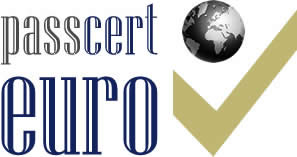
ISO 28000:2007
This standard is an international standard, defines the requirements of the Supply Chain Security Management System and provides a management model for organizations that want to implement this system.
The meaning of the term Security in the Supply Chain Security Management System standard is defined as opposing activities that may harm the Supply Chain, either knowingly or through unauthorized actions.
In this context; enables the organization to control the risks that may occur in the supply chain by making an effective risk assessment in some areas.
Many organizations say, "It doesn’t happen to us!" It acts with the approach, but in reality, it may be faced with a number of violations in various forms and forms.
Some examples of risks that organizations may face in the supply chain can be given as follows;
The products; theft, loss, damage, damage, deterioration during production, storage and transportation operations, Damage as a
result of deliberate actions against buildings, facilities and vehicles, Use of
establishment vehicles in malicious acts, terrorist attacks, Actions
aimed at damaging the directors or employees of the establishment ,
Operational threats and risks, Factors that may affect the performance, conditions and security of the organization (human, system, etc.),
Natural environmental events that may adversely affect security measures and equipment (storm, flood, earthquake ...),
Factors beyond the control of the organization (external equipment and services like…),
Risks and threats arising from stakeholders (such as non-compliance with legal requirements, damage to the brand or image),
Security equipment design, use, maintenance, modification, etc.,
Information and data management, and threats that may affect the continuity of communication activities.
It aims to manage the supply chain risks effectively by taking the activities of the organization under the same umbrella with other management systems,
Ensures that security risks are determined in all sectors of the industry and that the necessary measures are taken and possible damage is realized at minimum, Bringing the
activities related to the subject to the agenda of the senior management, enables the system to be supported by the management,
Provides convenience in business and transactions by proving the ability to define and control security risks to customs authorities
For organizations operating in the European market; Since many requirements in AEO (Authorized Economic Operator) applications are in line with the standard, it increases the trust of the legal authorities to
the organizations, Provides the trust of the organizations that provide products / services,
Increases the trust of the insurance
organizations , reduces the insurance costs, The certification of the system contributes to the holistic image of the organization,
Effective Security Provides international competitive advantage by providing implementation of the Management System.


